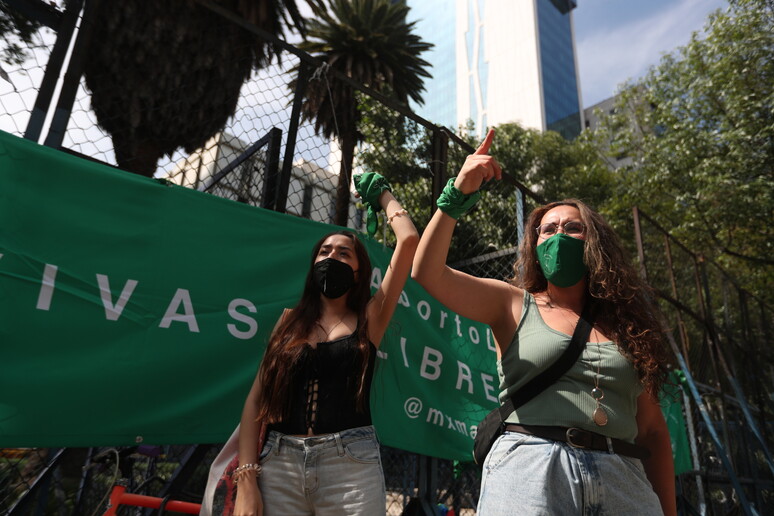Fuera aborto del codigo penal!, “Abortion out of the penal code”, read a gigantic banner in Mexico City earlier this week. On Wednesday, September 6, Mexico’s Supreme Court ruled to decriminalize abortion, striking down the relative article in the federal penal code. A decision in stark contrast with the United States, where a little more than a year ago, the Supreme Court overturned the landmark 1973 “Roe vs. Wade” ruling, abolishing federally guaranteed abortion rights.
The Mexican Supreme Court announced the historic decision with a message on X (formerly Twitter), stating “that the legal system that penalizes abortion in the Federal Penal Code is unconstitutional, since it violates the human rights of women and people with the capacity to gestate”: remarkably, the ruling’s wording specifically includes transgender men with a uterus. It is indeed a historical decision in a country where 80% of the 130 million citizens declare themselves Catholic.
12 States in the federation, starting with Mexico City in 2007, had already decriminalized abortion in past years (most up to 12 weeks). However, even after the new ruling the procedure remains illegal in 20 of the 32 Mexican states, but even there the Federal government will have to guarantee the existence of federal hospitals and clinics where pregnant women can seek abortion, and where doctors and midwife will be protected from prosecution.
Two years ago, the Mexican Supreme Court had already ruled that abortion is not a crime, responding to a constitutional challenge. The new ruling responded to a petition from the Grupo de Información en Reproducción Elegida (GIRE, or Group for the Information about Reproduction), aiming, as the organization says, to stop the criminalization of abortion “whether self-procured or legally allowed in the penal code of the country”. It marks a step forward, also because it should help women to understand that the right to a safe abortion exists. “Many women do not know they have a right to abortion because local governments did not advertise it” says activist Sara Lovera, a pioneer of women’s rights in Mexico.
Official data say that abortion pills are the most common method used in Mexico in the first 12 weeks, and pills were distributed across the country (and even in the United States) by various organizations to help women in need of a procedure.
Other countries where abortion is legal in Latin America are Argentina, Colombia, Cuba and Uruguay; in some countries it is allowed after rape or serious health risks, but it is banned in El Salvador, Honduras, Nicaragua, Haiti and the Dominican Republic.
According to WHO (the UN World Health Organization) the numbers on abortions are staggering. 3 out of 10 pregnancies end in an induced abortion globally, and the number rises to 6 out of 10 unwanted pregnancies. However, 45% of all abortions are unsafe, of which 97% take place in developing countries. Around 73 million induced abortions take place globally every year, and comprehensive abortion care is included in the list of essential health care services published by WHO in 2020.











